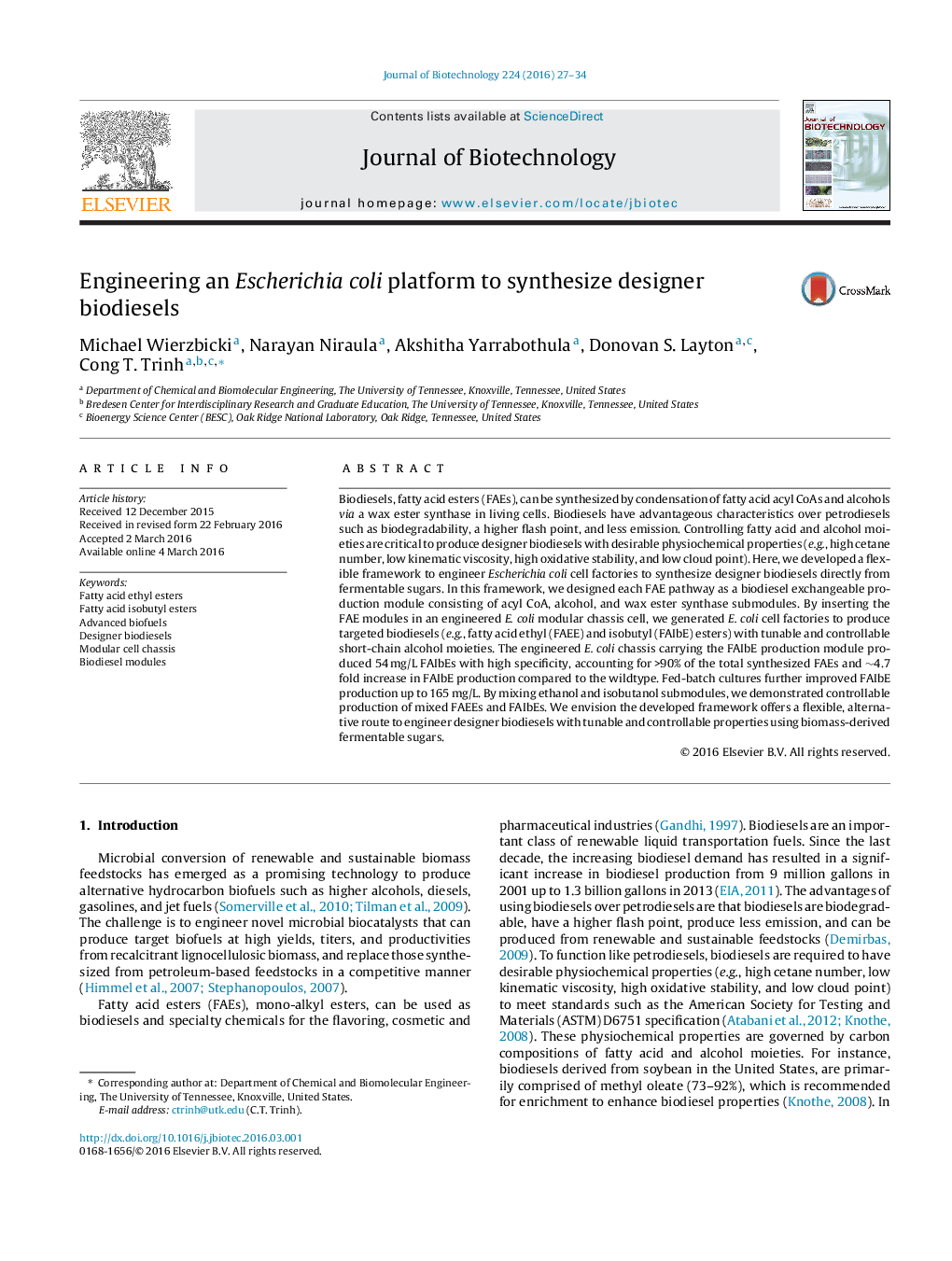| Article ID | Journal | Published Year | Pages | File Type |
|---|---|---|---|---|
| 22729 | Journal of Biotechnology | 2016 | 8 Pages |
•Develop an E. coli platform to synthesize biodiesels with tunable fatty acid and alcohol moieties.•Design fatty acid ethyl and isobutyl ester pathways as exchangeable biodiesel production modules.•Demonstrate an E. coli modular chassis carrying biodiesel modules enhanced biodiesel production.•Demonstrate biodiesel modules can be mixed to control alcohol moieties of designer biodiesels.
Biodiesels, fatty acid esters (FAEs), can be synthesized by condensation of fatty acid acyl CoAs and alcohols via a wax ester synthase in living cells. Biodiesels have advantageous characteristics over petrodiesels such as biodegradability, a higher flash point, and less emission. Controlling fatty acid and alcohol moieties are critical to produce designer biodiesels with desirable physiochemical properties (e.g., high cetane number, low kinematic viscosity, high oxidative stability, and low cloud point). Here, we developed a flexible framework to engineer Escherichia coli cell factories to synthesize designer biodiesels directly from fermentable sugars. In this framework, we designed each FAE pathway as a biodiesel exchangeable production module consisting of acyl CoA, alcohol, and wax ester synthase submodules. By inserting the FAE modules in an engineered E. coli modular chassis cell, we generated E. coli cell factories to produce targeted biodiesels (e.g., fatty acid ethyl (FAEE) and isobutyl (FAIbE) esters) with tunable and controllable short-chain alcohol moieties. The engineered E. coli chassis carrying the FAIbE production module produced 54 mg/L FAIbEs with high specificity, accounting for >90% of the total synthesized FAEs and ∼4.7 fold increase in FAIbE production compared to the wildtype. Fed-batch cultures further improved FAIbE production up to 165 mg/L. By mixing ethanol and isobutanol submodules, we demonstrated controllable production of mixed FAEEs and FAIbEs. We envision the developed framework offers a flexible, alternative route to engineer designer biodiesels with tunable and controllable properties using biomass-derived fermentable sugars.
